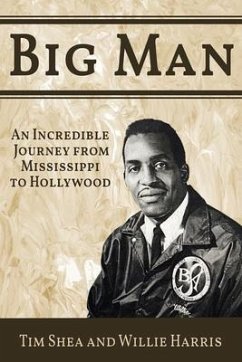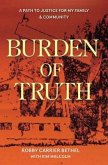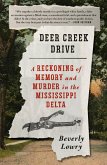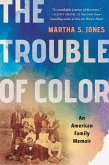Willie Harris is an American icon. Born into a Black sharecropping family, he was raised picking cotton on a plantation in Mississippi in the 1950s, though his childhood sounds more like a tale from the 1850s. He played Division I college basketball, served in the U.S. Air Force, and as one of the leaders of the Black Stuntmen's Association in the 1970s, he helped wage a battle against racism in Hollywood that changed the film industry. He and his fellow warriors received the NAACP President's Award, were commended by the United States Congress, and their story is told in the Smithsonian Institute's National Museum of African American History and Culture.
That's a very inspiring life for someone whose greatest prospect as a boy was to drive a tractor. He was battered, beaten, and broken, but never defeated, and he did it all with an infectious smile and generous humanity that makes you very thankful you got to know him.
Willie's story is gripping, poignant, and inspirational. The cold brutality of life under Jim Crow in Mississippi is laid bare in frank detail but is offset by the love and strength of his mother Evie, who worked steadfastly to keep him safe and give him a glimmer of hope for a better life. He grew exponentially in the Air Force where he was shocked to find he became best friends with two white hillbillies and surprised that he did not experience the racism in the service that he faced his whole life. Most astonishingly, he fell in love with a white woman, and they were married in the early 1960s, when it was still illegal to do so in 19 U.S. states. Simultaneously, the Air Force took advantage of his tremendous athletic ability-he was 6'8" tall and an agile mountain of a man-and caused irreparable damage to his knees by giving him weekly painkilling steroid injections, just so they could keep him on the basketball court.
This is a story about the American Dream and the many ways that forces in America conspired to crush that dream for many of its citizens. It is also a story about a man who fought with determination and purpose, refusing to be denied a taste of the sweet nectar of true freedom.
That's a very inspiring life for someone whose greatest prospect as a boy was to drive a tractor. He was battered, beaten, and broken, but never defeated, and he did it all with an infectious smile and generous humanity that makes you very thankful you got to know him.
Willie's story is gripping, poignant, and inspirational. The cold brutality of life under Jim Crow in Mississippi is laid bare in frank detail but is offset by the love and strength of his mother Evie, who worked steadfastly to keep him safe and give him a glimmer of hope for a better life. He grew exponentially in the Air Force where he was shocked to find he became best friends with two white hillbillies and surprised that he did not experience the racism in the service that he faced his whole life. Most astonishingly, he fell in love with a white woman, and they were married in the early 1960s, when it was still illegal to do so in 19 U.S. states. Simultaneously, the Air Force took advantage of his tremendous athletic ability-he was 6'8" tall and an agile mountain of a man-and caused irreparable damage to his knees by giving him weekly painkilling steroid injections, just so they could keep him on the basketball court.
This is a story about the American Dream and the many ways that forces in America conspired to crush that dream for many of its citizens. It is also a story about a man who fought with determination and purpose, refusing to be denied a taste of the sweet nectar of true freedom.
Dieser Download kann aus rechtlichen Gründen nur mit Rechnungsadresse in A, D ausgeliefert werden.









